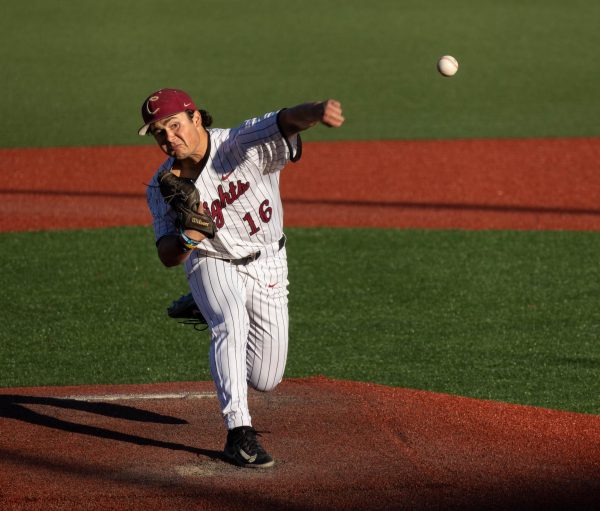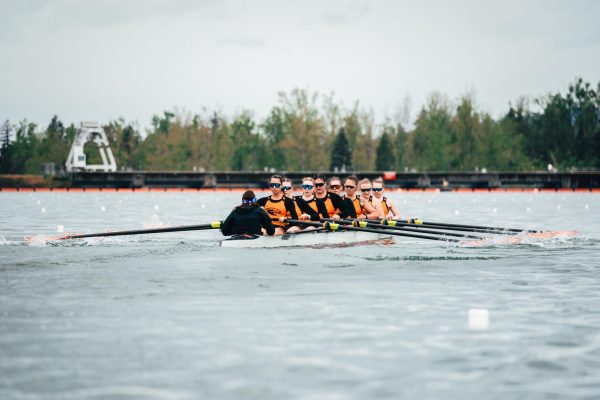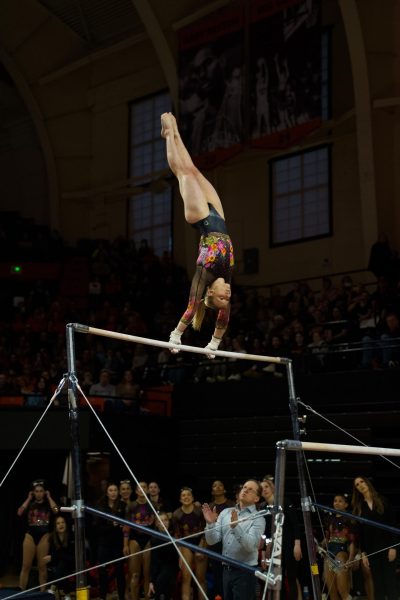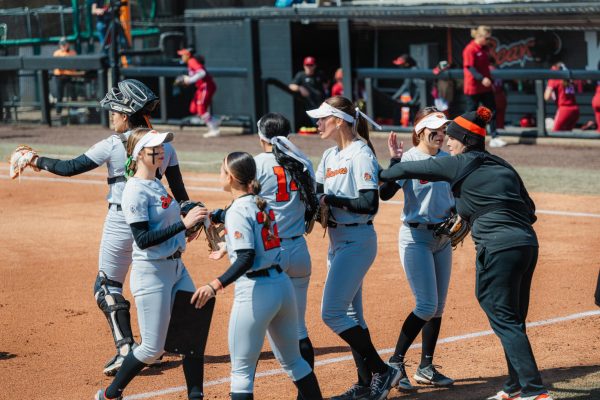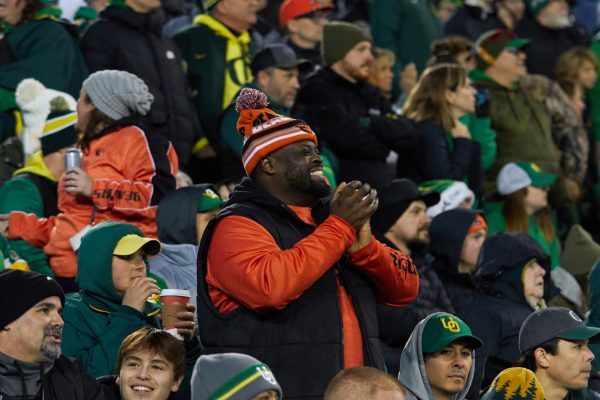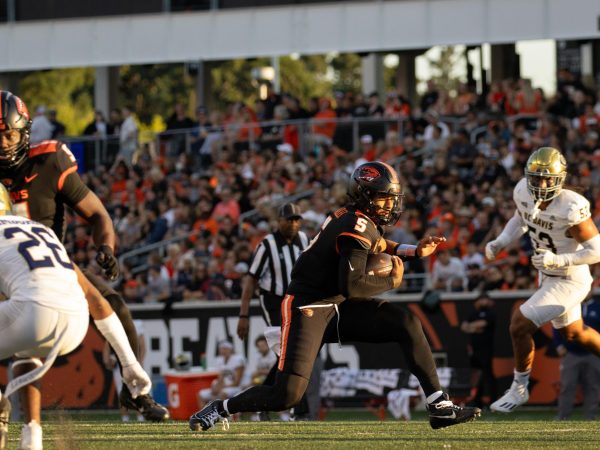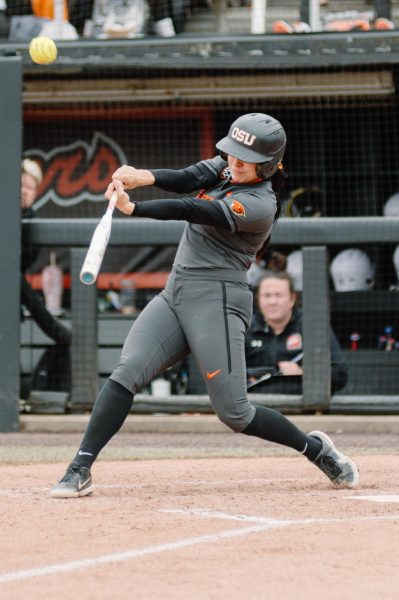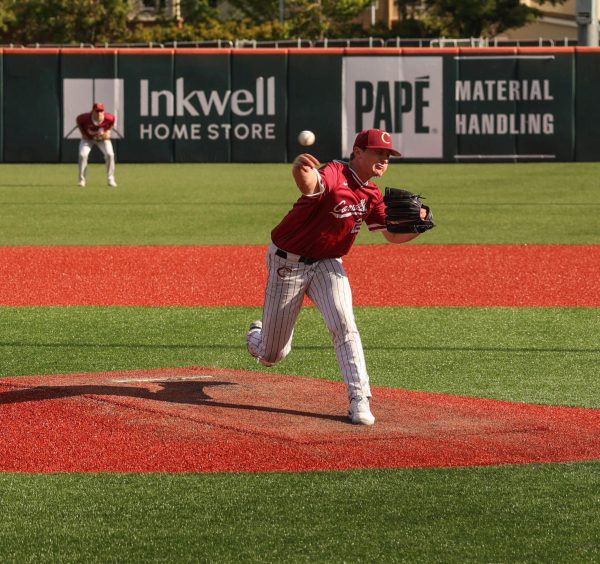Oregon State Wrestling’s Engel and Pendleton reflect on Stanford cutting wrestling
August 20, 2020
When the PAC-12 held its 2020 Wrestling Championships in early March, the six programs of the conference’s six-school division were all represented. However, the next time the conference meets, one of those schools might be playing in its final PAC-12 Championship.
As of the 2019 season, the Pac-12 wrestling conference consisted of six universities: the Oregon State Beavers, the Arizona State Sun Devils, the California State Bakersfield Roadrunners, the Cal Poly Mustangs, the Stanford Cardinal, and the Arkansas-Little Rock Trojans.
But after the 2020-2021 academic year, only five schools will be left in the conference, as Stanford University announced on July 8, 2020, that their school’s wrestling program will be discontinued after that season; in addition to 10 other varsity sports programs.
The decision by Stanford, in consultation with their Board of Trustees, was made in response to financial concerns amid the ongoing COVID-19 pandemic. One of the many faces feeling the weight of Stanford’s decision is Nate Engel, Oregon State’s current assistant wrestling coach.
Engel joined the Beavers’ wrestling staff in May 2020 after serving as a volunteer assistant coach at Stanford for the last two years. Engel, who came the Oregon State coaching staff only a few months prior to Stanford’s official decision to cut the wrestling program, remembers his two years with the Cardinal fondly.
“It was amazing,” Engel said. “Jason [Borrelli], Ray [Blake], and Alex [Tirapelle] were great coaches to work with. I loved my time there. They did a lot of great things in those two years that I was there, we won our first PAC-12 title in the history of Stanford wrestling.”
Since Engel recently was associated with the Stanford wrestling program, he was one of the first people to find out about the university’s decision, a decision that was difficult for the coach to hear. But in his sadness, Engel found himself less worried about himself and more in grief about how his former coaching staff and student-athletes were handling the situation.
“I was devastated for the coaches and the athletes, just because I have a very close relationship with them,” Engel said. “To get an email ten minutes before you have a Zoom meeting saying that 11 sports are getting canceled is a difficult way to find out that the lives of your student-athletes are going to change, possibly forever.”
Engel was not the only coach on the Beavers’ wrestling staff to feel the weight of losing Stanford’s wrestling program. Oregon State’s Head Wrestling Coach, Chris Pendleton, who joined the Beavers’ staff in 2020 from Arizona State, was also affected by the Stanford Wrestling program being canceled.
“It felt unreal,” Pendleton said. “Stanford is one of the preliminary universities across the country, and it was so out of the blue, that I was just in shock, along with everyone else in the wrestling community.”
However, the cancellation of different college wrestling programs is something that has happened on several different occasions in recent years, and as Pendleton puts it, is something that the wrestling community is used to.
“Unfortunately, the wrestling community is used to this,” Pendleton said. “We’ve had to have those fights in California before, with Fresno State wrestling, and some other programs, where if this had to happen to a university, there isn’t a better state or a better coaching staff that can respond to the challenge. I have complete faith in the Stanford coaches, alumni, and community that this fight is not done.”
The fights for maintaining college wrestling programs have not just happened in California, either. Most recently, in April of 2020, Old Dominion University announced that it would discontinue its wrestling program. And in March of 2018, Eastern Michigan University also announced that they would drop their wrestling program as well.
Engel believes that canceling these wrestling programs could prove harmful for collegiate-level wrestlers, both athletically and academically.
“I think it’s terrible. It takes away opportunities for wrestlers to wrestle at the highest level,” Engel said. “Anybody can wrestle, it’s a very all-inclusive sport. For the west coast, if you look around, there’s not a lot of division one programs, so we need to do everything we can to keep Stanford wrestling in the Pac-12, and keep the program alive because there’s a lot of kids on the west coast that don’t have that opportunities to stay on the west coast to go to college.”
On the other hand, Pendleton mentioned how athletic success is not the only determining factor when it comes to a university dropping its wrestling program.
“It’s hard because you need to have a clear understanding of what is the bar for success in the eyes of an athletic administrator,” Pendleton said. “Having places drop programs with All-Americans that same year really kind of opens people’s eyes that it’s not just your athletic success. Things like your APR, your community outreach, and your donor giving level directly affect your programs.”
Pendleton continues to have full faith in the Stanford community to do whatever they can to keep the program alive. And the fans and members of Stanford Athletics are continuing to fight for their wrestling program as well.
A large part of that fight has taken place across social media. The hashtag #KeepStanfordWrestling has been trending on various different social media platforms, and the “Keep Stanford Wrestling” petition on Change.org has over 15,500 signatures as of writing.
And even now at Oregon State, Engel keeps the coaches and student-athletes from the Stanford wrestling team in his thoughts and wants to help keep the program alive in whatever way he can.
“I want to help any way I can to save that program, not just because I was there for two years, but [because] it’s a great program,” Engel said. “I want to do whatever it takes to help save it.”
















































































































